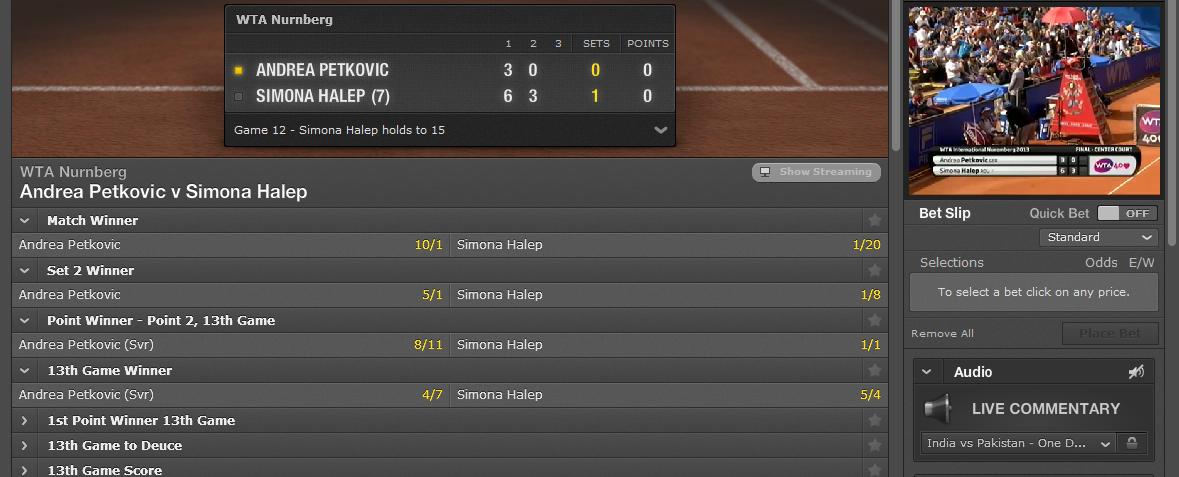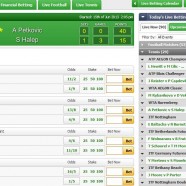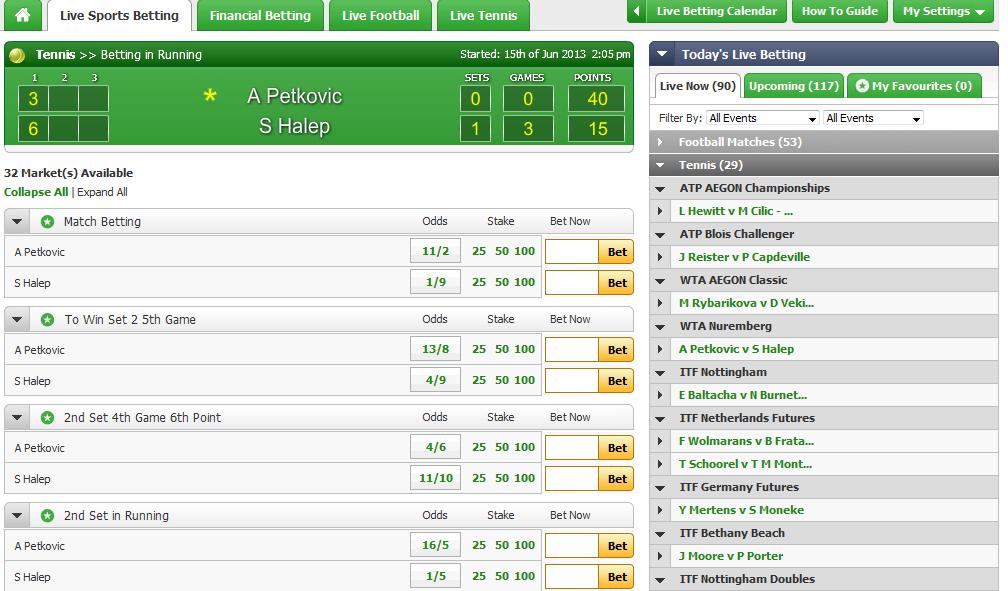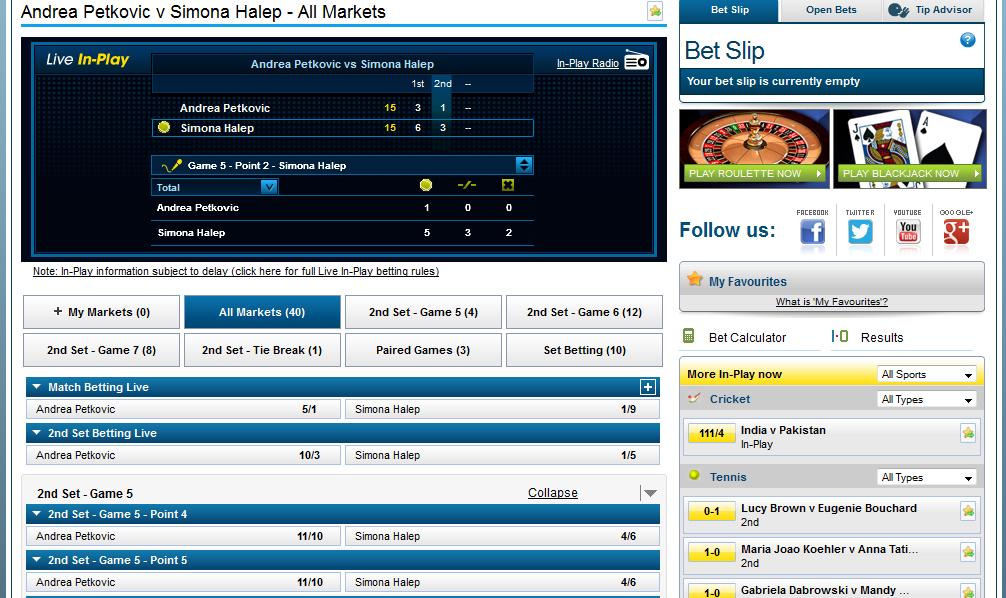Inside Out
There’s a common misconception amongst bettors – particularly in the UK – that those who work inside the industry as odds compilers or in-play traders don’t understand the frustrations when trying to place bets themselves. I’ve always found that suggestion quite strange since many people inside the industry make (or at least try to) a supplemental living through their own wagers with rival companies. The barriers and restrictions that sharp betting minds encounter with bookmakers are the same as those enforced on those in the industry playing the other side of the fence. I’m not sure how this idea has been cultivated that people inside the industry are forced to take a side either as a bettor or a bookmaker when the exact opposite is true. Both bookmakers and bettors strive to perfect a very similar skillset
Written by Jay Jarrahi (@JayJarrahi)
Being the book is the easy part: Bookmakers price to margins that immediately give the book an edge over the average bettor because the bettor is simply not informed or skilled enough to beat the book over the long haul. The average bettor doesn’t know or care what percentage book he/she is backing against and is unlikely to know the math behind the positions they’ve supported, the margin they are up against, or the assessment of what they feel the true percentage chance should be for what they’ve bet. They’re simply having a bet for “the fun of it” or because it’s the World Cup or the NBA Finals or the Super Bowl or Wimbledon and they “always” have a bet that time of year. Losing money is a betting tradition for the average bettor and as touched upon in last week’s column, is why bookmakers will always thrive and exist.
Having played both sides of the fence and mixed the two for a number of years, my joy comes from beating the book. That’s the real challenge and true test. Being the book couldn’t be easier. The pressure is completely off, the margins are in your favour (if managed correctly) and any mistakes you may make – and they do happen – are invariably offset by uneducated (in betting terms) money pouring into your book to reverse some of the potential sharp liability. There’s no better feeling in this industry than having the bookmaker come to battle – as it were – with all of these preconditioned advantages and still being able to find value despite the house margins to beat them over the long haul.
It’s a comfortable life being inside of the industry making a yearly salary where the bills are always taken care of and having that opportunity to make your income while being gainfully employed. Many in-play traders aren’t just trading their own games or matches because they’re also looking to take advantage of value left on offer by rival companies covering the same games and matches. It happens all the time; everyone is watching each other and mistakes don’t go unnoticed. Some companies are worse than others where it concerns taking their eye off the ball. I’m sure those of you in the UK who bet in-play regularly will know the shops where opportunity seems to find the punter more often than not.
WHAT IS A TRADER?
I’ve been asked this a number of times since I joined Twitter last summer and it’s rarely a sufficient medium to fully explain, so I’ll take the chance to do so in this column. Before we delve deeper into specifics it’s important to define a few titles beforehand for clarity. In the industry an odds-compiler or odds-maker is usually a person who deals with setting pre-match prices and lines for all markets. Traders are people who trade matches that are in-play/live events. In some cases odds-compilers will also do some trading. It depends on the particular company and their organizational structure.
Below are some screenshots of an in-play betting page with three different companies. That’s the page the bettor is looking at trying to find value and it’s also the page the bookmaker’s trader is looking at to reassess and change their prices as the match develops.
Each sport is traded differently in many respects but the core to any match are your supremacies. In a tennis match your supremacy is defined on a trading application by a hold serve percentage. This is toyed around with by the trader in order to get his prices where he would like them, moving them up and down as the match goes on based on how it unfolds. This has an impact on the pricing of all other markets, so it’s not a case of a trader having to change prices themselves for each and every market – that would take far too long. There are more nuances to trading a tennis match but the detail of which is not important to delve into at this stage.
In soccer for example two numbers are required to trade sufficiently, your match supremacy which indicates the amount of goals one team is better than another by and the total goals expectancy which indicates the amount of goals we might expect in a particular match. Like with tennis these core outputs are manipulated by the trader as the match goes on and once again is the key to defining pricing for the many other markets you can bet on in-play. In future columns we will look at how to formulate supremacies/expectancies from scratch and how they equate to pricing to give a better understanding of knowing what a price actually means. Any good trader should be able to tell you a price based on supremacy/expectancy and likewise tell you the supremacy/expectancy based off the price at a particular stage of the match within reason at the house’s desired margin. However, not all traders can – believe it or not. Not all traders are necessarily good ones because having a job doesn’t automatically mean you’re good at your profession; why should the betting industry be any different?
In the future we will get deeper into the specifics of in-play trading particularly as it is gradually being introduced in the US. In-play has been available in the UK for 15 or so years which will just go to show those of you in the US how far behind the states are in this business. There isn’t a single sporting event you can’t bet on in the UK during the match and there are many markets available to bet on in addition to who wins the game or who might cover the spread. Many of those derivative markets are ones a professional wouldn’t touch with a barge pole because the margin isn’t competitive and the complete lack of value that they offer aren’t attractive but that doesn’t stop the average bettor from getting involved at his own peril.
Everytime you step to the window to make a bet, whether pre-match or live, always ask why the bookmaker has set a price the way he has. You’ll be able to get inside his head and gain a much better understanding of exactly what the market is telling you and how best to attack it for profit.














